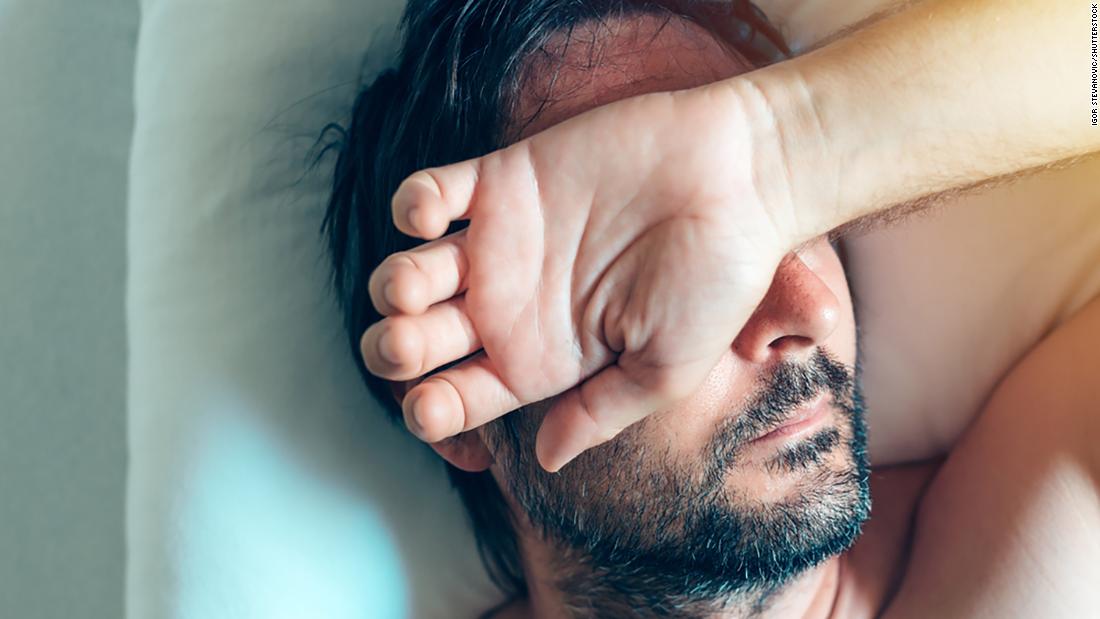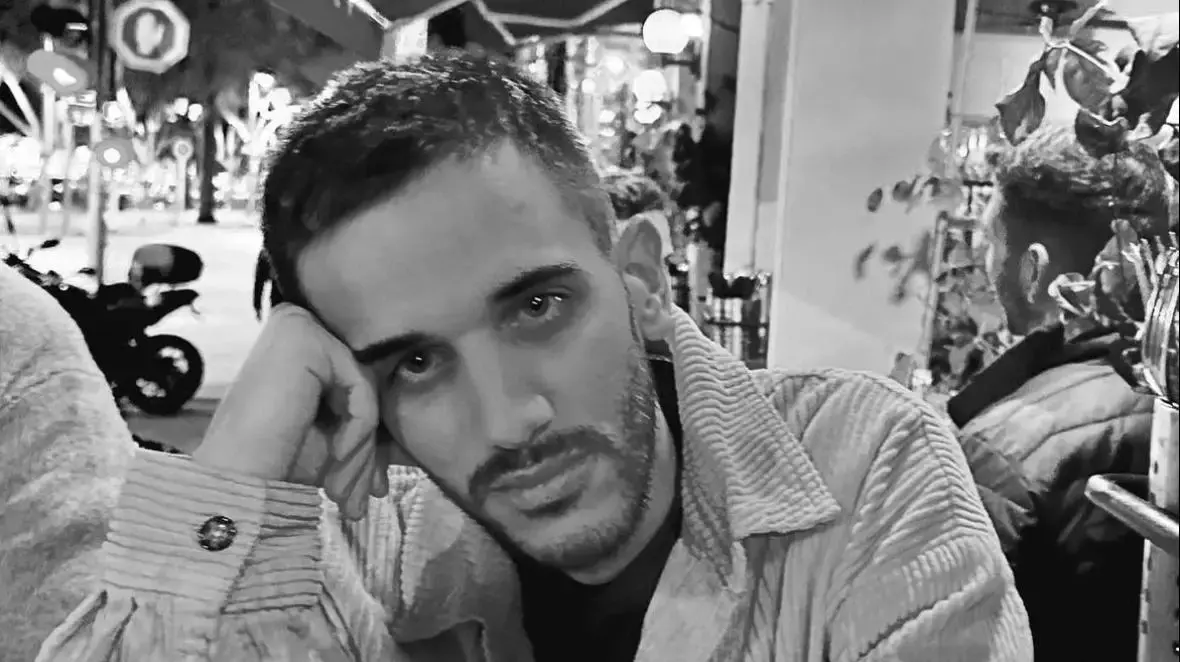Psychologist on Biles: "The world on top of a little girl" 4:21
(CNN Spanish) -
Depression is a condition that goes beyond sadness.
In the world more than 264 million people suffer from it, but fortunately there is treatment.
The subject of mental health came to the fore at the most recent Olympics because of American gymnastics star Simone Biles, who withdrew from competition, speaking about the mental toll that competing at the highest level has caused her.
Biles told reporters that he withdrew not because of an injury, but to "work on [his] mindfulness."
She talked about how stressful it was the day before the event, how she was "shaking" and could barely take a nap after her workout.
He said he had never felt like this before before a competition.
"I think we are too stressed," he told reporters.
"We should be here having fun, but that's not the case."
Depression and suicide: where to seek help in Latin American countries and Spain?
But Biles is not the only one who has spoken openly about her mental health.
Another athlete whose performance was one of the most anticipated at the Olympics, Japanese tennis player Naomi Osaka - who was in charge of lighting the Olympic cauldron - withdrew from the French Open in May, citing mental health reasons, she later revealed that he had "suffered long bouts of depression" since winning his first Grand Slam title in 2018. Osaka later withdrew from Wimbledon.
advertising
What is depression and how to identify it?
Depression is a condition that goes beyond sadness, according to the American Psychological Association (APA).
"People with depression may experience a lack of interest and pleasure in their daily activities, significant weight gain or loss, insomnia, or excessive desire to sleep," says the APA.
It also speaks of "lack of energy, inability to concentrate, or feelings of worthlessness or excessive guilt and recurring thoughts of death or suicide."
Why everyday things like getting out of bed, bathing, and eating can be a struggle for people with depression
It is one of the "most common" mental disorders, says the APA, but "fortunately," it adds, it is a condition that can be treated, with a combination of therapy and antidepressant medications that can aid recovery.
According to the World Health Organization (WHO):
It is a common mental disorder and globally more than 264 million people of all ages suffer.
It is one of the leading causes of disability worldwide, says the WHO, "and is one of the major contributors to the global burden of disease."
It affects more women than men.
It can make a person commit suicide.
In fact, about 800,000 people die each year from suicide and it is the second leading cause of death in people between the ages of 19 and 29, says the WHO.
Cases of depression on the rise in the US
The last year has been atypical in terms of the increase in cases of depression in the US due to the coronavirus pandemic that led to confinement orders for months and physical distancing between loved ones to prevent the spread of the virus.
A survey by the US Census Bureau found that one in three Americans reported symptoms of depression or anxiety, more than three times the rate of a similar survey conducted in the first half of 2019. And that physical distancing and a lot Time without seeing friends and family exacerbated the already widespread problem in loneliness, which can be profoundly damaging to mental health.
According to a Census Bureau survey, as of late May and early June, more than 40% of adults in the United States said they felt "low spirited, depressed, or hopeless" for at least several days a week , compared with more than half of adults who said the same at the peak of the pandemic in January.
Colombian comedian Risaloca shares his fight against depression
Depression continues to be highest among adults under the age of 30 and is not improving as fast as it is in other age groups.
About 56% of adults under the age of 30 said they experienced feelings of depression in a recent week, according to data from the latest survey collected between May 26 and June 7, compared with 65% at the peak of the pandemic.
How to help or seek help?
According to the APA, social isolation increases the risk of depression, worse, on the other hand, says the APA, discussing problems with friends for a long time can in fact "increase depression as well."
Therefore, as depression is a disease that "carries high costs in terms of relationship problems", interpersonal, according to the APA, it can also lead to problems for the family and cause the person to lose productivity problems.
How to fight depression?
Experts explain treatments and options
Psychologists, behavioral therapy, and medications are expert-approved treatments.
What to do if you have a loved one with depression, according to the American Foundation for Suicide Prevention.
1. Don't leave the person alone.
2. Remove any firearms, alcohol, drugs, or sharp objects that could be used in a suicide attempt.
3. Call the US National Suicide Prevention Line at 1-800-273-TALK (8255).
4. Take the person to an emergency room or seek help from a medical or mental health professional.
For more tips and warning signs, click here.
OPINION |
Dep *** ion, that swear word that from time to time I still fear (and am ashamed) to say out loud
In Latin America and Spain
ARGENTINA
Suicide prevention line - help for suicides online
PHONE: (54-11) 5275-1135 or 135 from Buenos Aires and GBA
Let's Talk About Everything
E-mail: contacto@hablemosdetodo.gob.ar
Telephone directory
BOLIVIA
Telephone of hope
La Paz: 2248486
BRAZIL
Centro de Valorização da Vida, CVV
Telephone: 188
Chat: (help by chat)
Email: atendimento@cvv.org.br
CHILE
Telephone of hope
Telephone: 005642221200
Everything improves, help by email or chat
COLOMBIA
Telephone of hope
Barranquilla: (00 57 5) 372 27 27
Bogota: (57-1) 323 24 25
Medellin: (00 57 4) 284 66 00
San Juan de Pasto: 3016326701
COSTA RICA
Phone of hope
Email: telefonodelaesperanzacr@gmail.com
ECUADOR
Telephone of hope
Quito: (593) 2 6000477 - 2923327
SPAIN
Telephone of hope: 717 003 717
HONDURAS
Telephone of hope
San Pedro Sula: (00 504) 2558 08 08
MEXICO
Instituto Hispanoamericano de Suicidologia, AC
Telephone: +5255 46313300
Email: info@suicidiologia.com.mx
PERÚ
Sentido (Peruvian Center for Suicidology and Suicide Prevention)
Telephone: 01 498 2711
Hope phone
Lima: (00 51 1) 273 8026
PUERTO RICO
PAS Line (First Psychosocial Help)
Telephone: 1-800-981-0023
URUGUAY
Last resort
Telephone: 0800-Vive (8483)
VENEZUELA
Telephone of hope
Valencia: 0241-8433308
National: 0-800-PSIQUE
Depression






